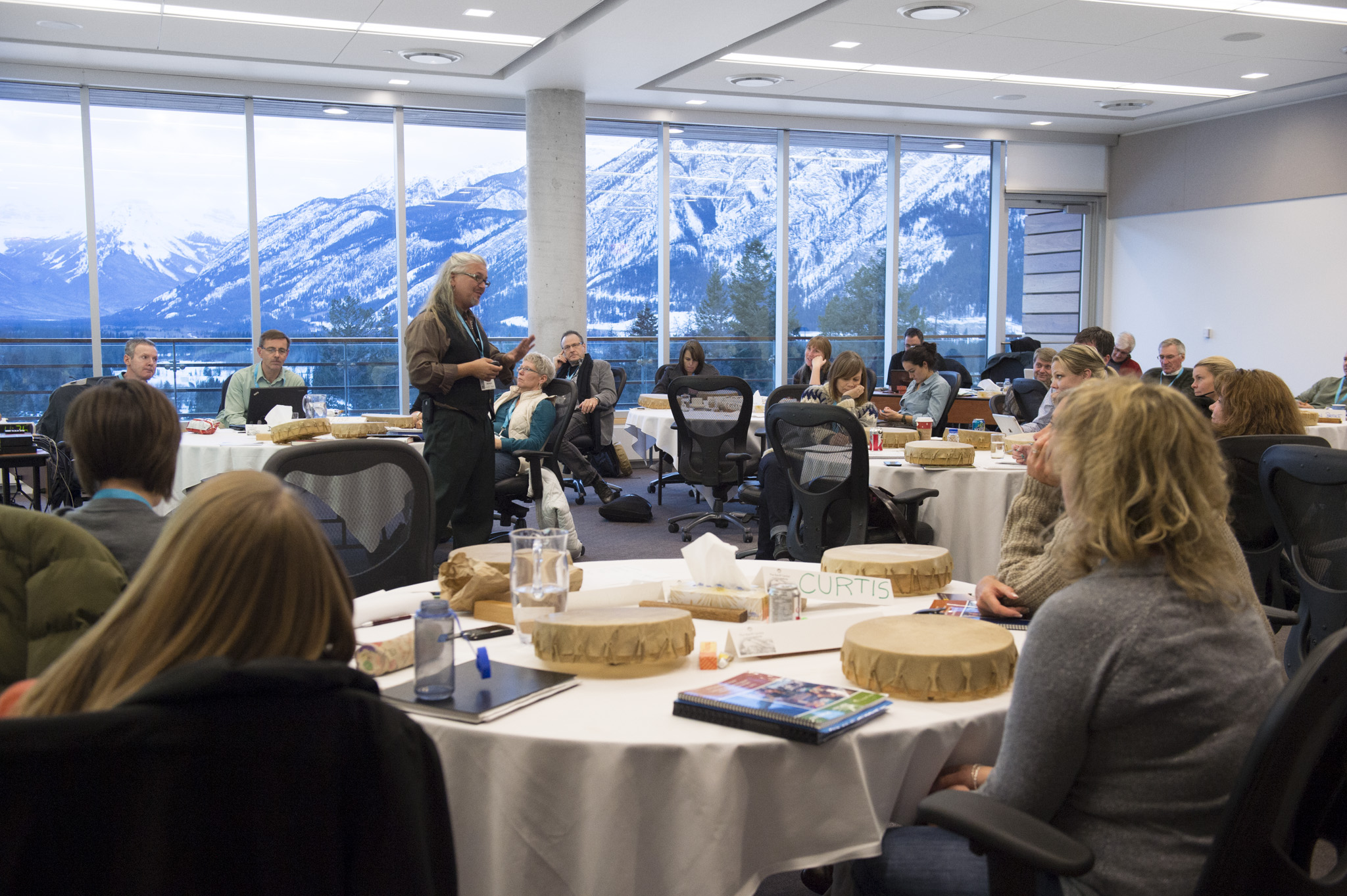Intersecting Local Leadership: A Community of Leaders Learn From Wise Practices

Don McIntyre facilitates a leadership program in the Kinnear Centre.
Despite the similarities in the issues and concerns associated with their roles, Indigenous and non-Indigenous local government leaders rarely take the opportunity to share their experiences, unique challenges, approaches, and dreams. One occasion to share stories and learn together came over two full days when Encana Corporation, Cenovus Energy, and The Banff Centre hosted regional leaders from across Alberta, B.C., and Saskatchewan for “Leadership at the Apex”, the third year of a five-year Community of Leaders program.
Leadership at the Apex brought together Chief Elected Officers, Chief Administrative Officers, Chiefs, and Band Managers from a broad spectrum of local governments, including major cities, municipalities, and First Nations. The Banff Centre invited Gordon McIntosh, George Cuff and myself to facilitate, direct, and focus the journey of these local leaders, as they took time out of their hectic schedules to discuss and dissect the leadership relationship, governance successes and challenges, leadership strategies, and the move toward incorporating wise practices into their work.
The chance to bring together governments that normally would not intersect was a unique opportunity for all involved to learn, discuss, and plan for future success. Governments that function at the local or community level have a unique perspective – they are generally more hands-on, as their constituents are their neighbours.
While much of the demand on local politicians and administrators has immediacy – such as development of infrastructure and delivery of services – they must always be planning for the long-term good of their community. This is different from their provincial or federal counterparts, who are generally tasked with working on longer-term goals and who have more immediate issues as a secondary concern. This differing perspective of government creates a unique environment for local leaders. It was exciting to see how these local leaders found common ground, and how they developed a new appreciation of each other’s work, with both its successes and challenges.
Leadership at the Apex provided an opportunity for these community leaders to delve into the concept of wise practices (vs. the perhaps better known term, ‘best practices’), learning how these tried and tested tools are applied in both Indigenous and non-Indigenous communities to successfully meet the needs of their citizens. Wise practices are actions, tools, principles, or decisions that contribute significantly to the achievement of environmentally sustainable, socially equitable, culturally appropriate, and economically sound development.
The concept of wise practices suggests that there is not one best practice that will be successful for everyone. Rather, wise practices suggest that you are the best equipped to determine what is best for you. You are in the best place to determine your wants and needs, as well as the most efficient ways to achieve goals, based on your circumstances. Wise practices provide individualized solutions for specific community and leadership needs, and are necessary at the planning, growth, maintaining, and evaluating stages of leadership.
The group learned that developing wise practices can be made easier through the guidance of facilitators, but it is up to the group to input their ideas to ensure ownership and commitment to the wise practices. Local leaders participating in the program were shown various techniques that incorporate wise practices, which they could then use in their home communities.
In Leadership at the Apex, local leaders took away tools to help them lead more effectively, and be more productive in their communities. As well they took away the knowledge that they are not alone, and are in fact part of a valuable network of local leaders with whom they can begin to share their struggles, successes, and wise practices.
Don McIntyre is an Ojibway of the Temiskaming First Nation, a lawyer, teacher, lecturer, artist, and faculty member with Indigenous leadership programs at the Peter Lougheed Leadership Institute. He practices in the areas of Aboriginal law and governance, small business for Aboriginals, and tries to incorporate traditional knowledge and teaching into his practice.